What's on the minds of Ghanaian voters explored in seven charts
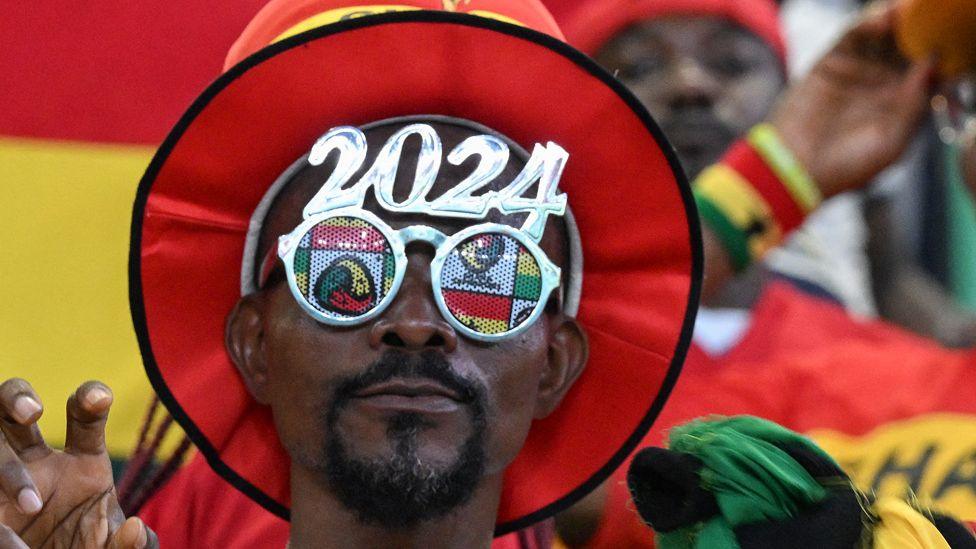
- Published
Ghana is heading for its ninth general election since multiparty politics resumed in 1992.
In that time, there have been three peaceful transfers of power, with the two main parties – the National Democratic Congress (NDC) and the New Patriotic Party (NPP) – holding the presidency for a total of 16 years each.
Here, in charts, are the big issues this time round as the NPP goes for an unprecedented third successive term in power.
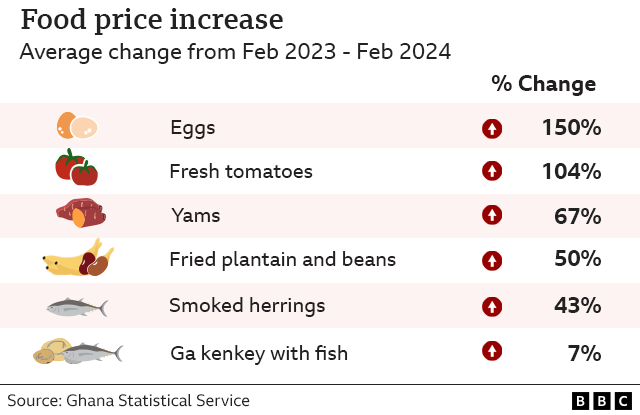
Ghanaians were hit particularly hard in the pocket by the global bout of inflation, beginning in early 2022, that saw prices rise in the country at their fastest rate for more than two decades.
The annual rate of increase reached a peak of 54.1% in December 2022. It has since come down, but this is just an average and prices of some staples have continued to go up sharply.
Eggs and tomatoes, for instance were more than twice as expensive in February 2024 as they were 12 months earlier. Other Ghanaian favourites have also shot up with wages not keeping pace.
Although the popular national dish - Ga kenkey (fermented maize dumplings) with fish - has not seen such a big jump, the balls of kenkey are now smaller.
As a result, more people have been pushed into poverty and living standards have suffered, the World Bank says, external.
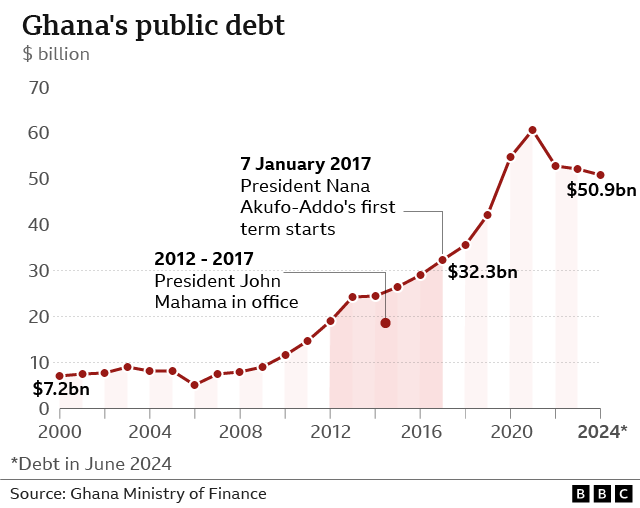
In 2022, Ghana defaulted on its debt repayments and was forced into lengthy negotiations with international lenders to try and restructure the loans, which are still on-going.
Local lenders were forced into taking lower repayments.
The government also went to the International Monetary Fund to get help with a bailout programme.
President Nana Akufo-Addo admitted the country was in “crisis” but blamed outside forces. The opposition and some economists said it was down to economic mismanagement by the government.
The amount of money that Ghana owes its creditors has steadily risen for the last two decades, but there was a sharp uptick in 2019, and by 2022 the government needed more than 70% of its income just to service the debt.
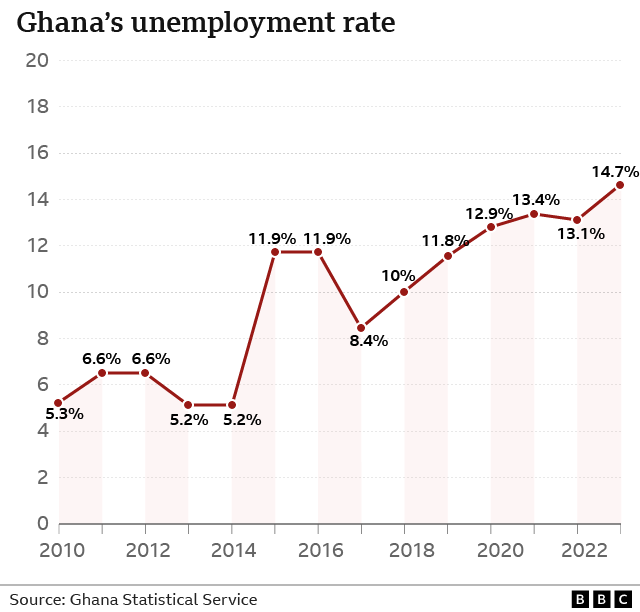
The country’s economic difficulties have been accompanied by a steadily rising unemployment rate.
Going back two decades, one in 20 Ghanaians able to work were unemployed - that figure now stands at one in seven.
With more than half the population - some 24 million people - under the age of 35, young people have been particularly hard-hit.
For 15-to-24-year-olds the unemployment rate is twice the overall figure, external, with nearly 30% without a job.
The views of younger voters could have a big impact on the outcome of the election.
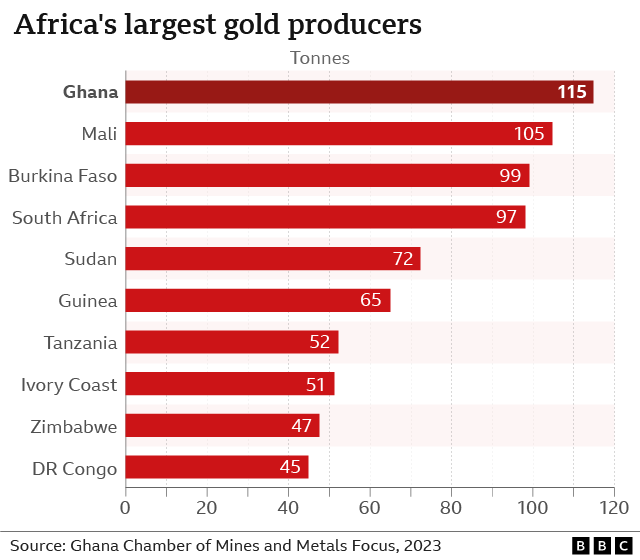
As Africa’s largest – and the world’s 10th biggest – producer of the precious metal, gold plays a big role in the economy.
Gold mining has become a major talking-point in the months leading up to the election, with complaints about the damage that small-scale and illegal mining is doing to the environment.
But with the global gold price more than doubling in the last decade, the attraction of getting involved in the business is obvious.
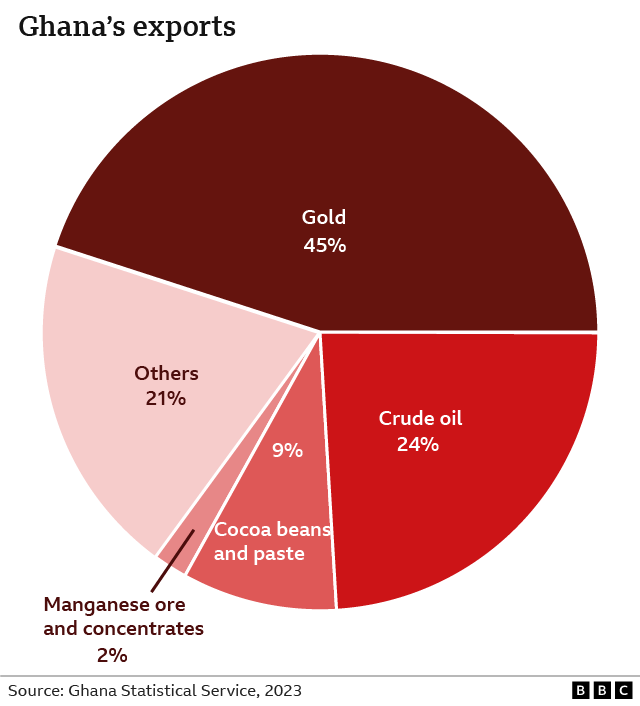
Gold is a big foreign-exchange earner for Ghana – in 2023, exports amounted to $5.2bn (£4.1bn).
Along with gold, the country has resources of oil, gas, diamonds, bauxite and lithium among other things.
It is also a big player in the global cocoa market, being the world's second largest supplier of the vital ingredient of chocolate.
These resources have transformed the economy over the past three decades and enabled the country to become much richer, with extreme poverty dropping by half in that time, World Bank experts have said, external.
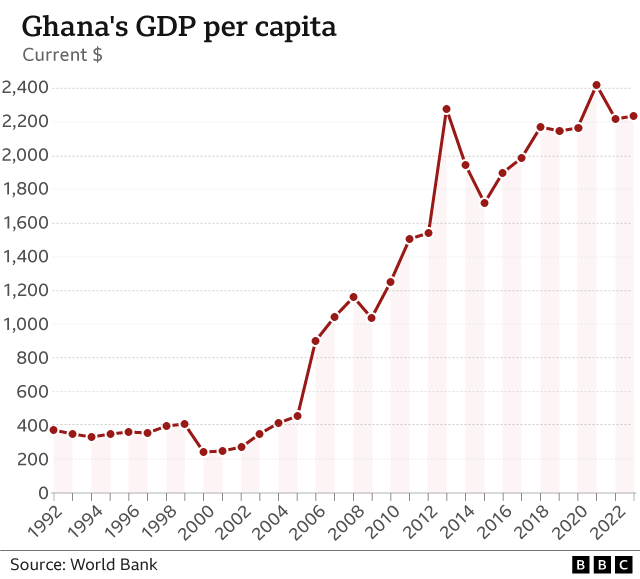
The average annual income per person has gone through a dramatic shift since 2005, with the standard of living showing a marked increase up to 2017.
Since then, however, it has barely risen, except for a spike in 2021.
At election time, politicians have to contend with the fact that voters tend not to take the long-term view but generally base their choice on whether things are improving in the short term.
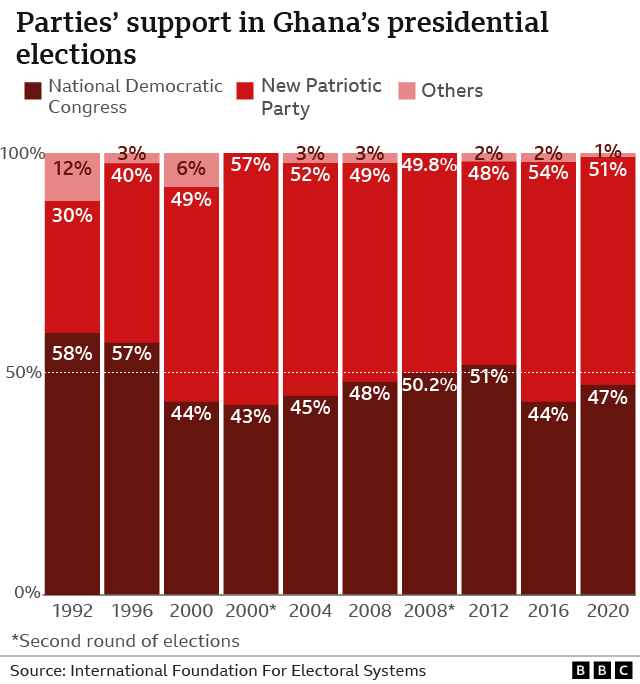
The last three decades have seen a series of closely fought and peaceful elections.
As a result Ghana has often been held up as an example of an open democracy that has turned its back on instability and its own history of coups in a region where they are still an issue.
In some cases, elections hinged on just tens of thousands of votes and despite occasional legal challenges, the results have generally been accepted by the losers.
We expect to find out the results of this year's race within three days of the 7 December election.



Go to BBCAfrica.com, external for more news from the African continent.
Follow us on Twitter @BBCAfrica, external, on Facebook at BBC Africa, external or on Instagram at bbcafrica, external